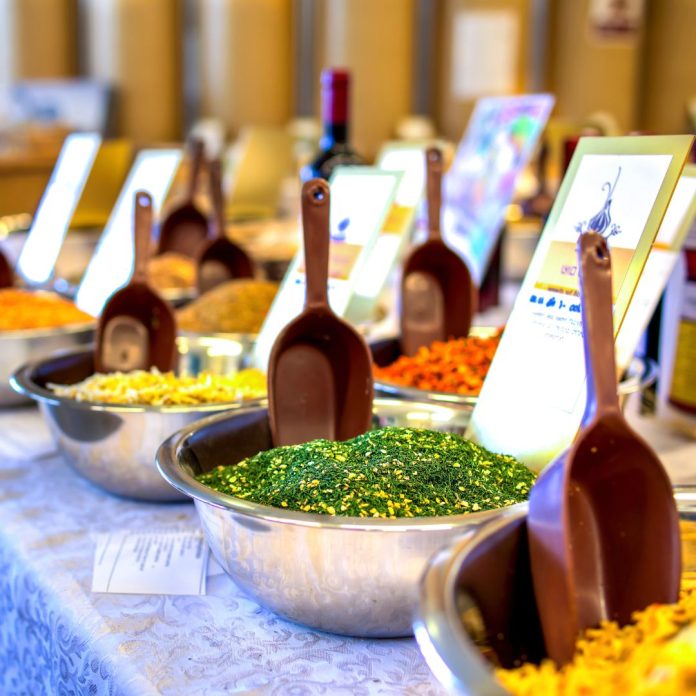Discover the best practices for using and storing fresh Herbs to maximize their flavor and shelf life. Learn how to incorporate herbs into your cooking and keep them fresh for longer periods.
Fresh herbs are culinary gems that can elevate the flavors of your dishes. Their vibrant colors, fragrant aromas, and unique tastes bring freshness and depth to a variety of recipes. However, to fully enjoy their benefits, it’s essential to know how to properly use and store fresh herbs. In this blog post, we will explore the best practices for handling, incorporating, and preserving the freshness of your favorite herbs. Let’s dive into the world of fresh herbs and unlock their full potential in your culinary adventures!
Choosing and Handling Fresh Herbs
- Selecting Fresh Herbs: When purchasing fresh herbs, look for bright, vibrant leaves that are free from wilting or discoloration. Avoid herbs with brown or slimy spots, as these indicate spoilage.
- Washing and Drying: Before using fresh herbs, gently wash them under cool water to remove any dirt or debris. Pat them dry with a clean kitchen towel or use a salad spinner to remove excess moisture.
- Removing Leaves from Stems: For most recipes, it’s the leaves of the herbs that are used. To separate the leaves from the stems, hold the top end of the stem and run your fingers along the stem in the opposite direction of the leaves. The leaves should easily detach from the stem.
Incorporating Fresh Herbs in Cooking
- Timing is Key: Fresh herbs are delicate and should be added towards the end of the cooking process to preserve their flavors and aromas. This ensures that their essential oils are released, infusing the dish with their freshness.
- Chopping or Tearing: Depending on the recipe, you may need to chop or tear the fresh herbs. For delicate herbs like basil or mint, tearing them by hand helps retain their flavors. For sturdier herbs like rosemary or thyme, finely chop the leaves to release their essence.
- Balancing Flavors: Each herb has its own flavor profile, so it’s important to understand their characteristics and how they complement other ingredients. Experiment with different combinations to find the perfect balance of flavors in your dishes.
Storing Fresh Herbs
- Refrigerator Storage: To extend the shelf life of fresh herbs, store them properly in the refrigerator. Wrap them loosely in a damp paper towel and place them in a resealable plastic bag or airtight container. This helps maintain moisture and keeps the herbs fresh for a longer period.
- Freezing Herbs: Another option for preserving fresh herbs is to freeze them. Chop the herbs and place them in an ice cube tray, covering them with water or olive oil. Once frozen, transfer the herb cubes to a freezer-safe bag or container. This allows you to easily portion out herbs for future use.
- Drying Herbs: If you have an abundance of fresh herbs, consider drying them for later use. Bundle a small bunch of herbs together and hang them upside down in a well-ventilated area. Once dry, store the dried herbs in airtight containers away from light and moisture.
FAQs about Fresh Herbs
Q: Can I substitute dried herbs for fresh herbs in recipes?
A: While dried herbs can be used as a substitute for fresh herbs, they have a more concentrated flavor. As a general guideline, use one-third of the amount of dried herbs in place of fresh herbs. Adjust the quantity to taste.
Q: How long do fresh herbs last in the refrigerator?
A: The shelf life of fresh herbs can vary, but in general, leafy herbs like parsley, cilantro, and dill can last up to one week when stored properly in the refrigerator. Sturdier herbs like rosemary, thyme, and sage can last up to two weeks or more.
Q: Can I grow my own fresh herbs at home?
A: Yes! Growing fresh herbs at home is a rewarding experience. Choose a sunny spot, use well-draining soil, and water the herbs regularly. You can start with commonly used herbs like basil, mint, or parsley.
Conclusion
Fresh herbs bring a burst of flavor and aroma to your culinary creations, and knowing how to properly use and store them is essential to make the most of their qualities. By selecting high-quality herbs, handling them with care, and incorporating them at the right time, you can enhance the taste and presentation of your dishes.
Remember to store fresh herbs correctly to prolong their shelf life. Whether you choose to refrigerate, freeze, or dry them, each method has its advantages. Experiment with different herbs and discover the exciting possibilities they offer in your cooking.
Embrace the world of fresh herbs and let their natural goodness transform your meals into culinary delights. Enjoy the vibrant colors, enticing aromas, and tantalizing flavors that fresh herbs bring to your table!



















